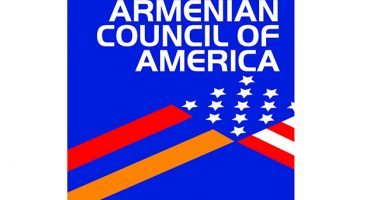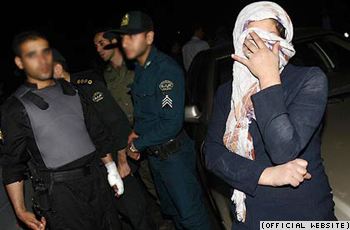“We think too much and feel too little. More than machinery, we need humanity. More than cleverness, we need kindness and gentleness. Without these qualities, life will be violent, and all will be lost.” – Charlie Chaplin, 1940
“It has become appallingly obvious that our technology has exceeded our humanity.” – Albert Einstein, 1940s
Where does a world go where lying and deceit are considered more effective for success than truth and sincerity? Where personal gain pursued even at the expense of the collective, is celebrated as cunning? Where fraud is acceptable to achieve goals? Where securing immediate, minor profit is preferred over long-term, sustainable gain? Where the ethos of serving the collective good is replaced by exploiting it? Where the powerful, driven by insatiable ambition, trample the weak?
The improvement of human life has long been the foremost goal of philosophers, prophets, and revolutionaries, spanning from ancient civilizations to modern times. Religions and philosophies have emerged from this pursuit. Yet, when this aspiration devolves into competition, it deviates from its noble purpose and becomes harmful, as evidenced by devastating wars fought over religion and ideology. When domination supersedes understanding, the original intent is lost.
In the 4th century BC, Aristotle coined “aristocracy” to describe the rule of the most qualified. Today, however, it is often opportunists, not the virtuous, who ascend to power. To describe their governance, we searched and found the term “kakistocracy.” This term may sound fabricated to Armenians, yet it’s genuine, derived from the Greek kakos (bad), signifying the rule of the worst. One can only imagine where such leadership might lead us and how disturbing would be its implications.
Dwight D. Eisenhower, World War II veteran and former U.S. President, warned in his 1961 farewell address of the growing power of the military-industrial complex, cautioning that it could endanger liberties and democratic processes. He said:
“Our toil, resources, and livelihood are all involved; so is the very structure of our society. … We must guard against the acquisition of unwarranted influence, whether sought or unsought, by the military-industrial complex. The potential for disastrous rise of misplaced power exists and will persist. … Only an alert and knowledgeable citizenry can compel the proper meshing of the huge industrial and military machinery of defense with our peaceful methods and goals, so that security and liberty may prosper together.”
Tragically, as an “alert and knowledgeable citizenry” has waned, this influence has surged, fueling over 250 conflicts since then. This has weakened the United Nations and the International Court of Justice, institutions founded to ensure peace and resolve disputes. Instead, we see states flouting international decisions, perpetuating wars that cost trillions, devastate nations, and displace millions. Imagine if the resources spent on war were instead directed toward improving lives. It is clear the world would be far better off. Yet, this requires prioritizing the collective good over domination, a shift that seems increasingly elusive.
Einstein foresaw the grim consequences: “I do not know with what weapons the Third World War will be fought, but I know that the Fourth will be fought with sticks and stones.” The warning is stark and urgent.
Our Task
Amidst this global chaos, what can we, as a nation, do to avoid being crushed by the upheavals of a changing world order?
Our path forward lies in reexamining our heritage and learning from it. By reacquainting ourselves with the messages enshrined in Khorenatsi’s Lament, in the epic of The Daredevils of Sassoun, and the diagnoses of Tumanyan, Raffi, Patkanyan, Charents and our other luminaries, we can chart a course for renewal. Our education system must instill these lessons, shifting our national mindset from personal to collective, from self-deception to self-awareness, from boasting to critical thinking, from emotion to reason, and from blaming others to accepting responsibility. Only then can we strengthen our self-defense, foster mutual understanding, and create a culture that prioritizes societal welfare, securing both individual and national prosperity.
This vision is neither dreamy nor unworkable. History demonstrates that states thriving on ideas and reason achieve enduring influence, while those relying solely on force inevitably decline. Great powers on the wane will create instability to extend their dominance, provoking wars and monopolizing resources, regardless of the cost to others, especially small nations. Recent examples include the collapses of Iraq, Libya, and Syria—under the guise of spreading democracy—leaving their people worse off than under dictatorships. This underscores the true motives of such interventions.
The misfortune lies in the fact that the concept of democracy, which is the most practical and beneficial means for small nations like ours to protect their national interests, is trampled upon by none other than the pioneers of democracy, including the United States, when the democratization of a given country does not align with their interests. Case in point is the overthrow of Mossaddegh’s democratic government in Iran in 1953. Case in point is the overthrow of Allende’s democratic government in Chile in 1973.
Today’s United States is not the democratic country of the 1950s-1960s; it is governed by the military-industrial complex and billionaires. If today’s United States does not return to the principles that contributed to its becoming “great,” it will find itself in decline—a decline that, according to Charlie Chaplin, will turn life into chaos and lead to the loss of everything.
To face these challenges, we must embrace the lessons of our greats, embedding them in our personal and collective lives. Nearly 150 years ago, Raffi lamented: ““We have no nobility, no leaders and no helmsmen. What we have is commerce and clergymen. Commerce is garbage, and the clergy is always against individual freedom. Those who are responsible for our security are criminal bandits.” The 1988 movement offered hope, briefly uniting us under Charents’ vision of salvation through collective strength. At that time we wrote a poem, wherein we stated:
“The hands of the Armenians clenched
And Karabakh became Artsakh.
The Armenians will moan no more,
Because their hearts are intertwined.”
Yet, this progress was undone by criminal bandits, leading to the loss of Artsakh and the displacement of its people. If we fail to establish a qualified and virtuous government—an aristocracy in the truest sense—we will remain condemned to the disasters of kakistocracy.











